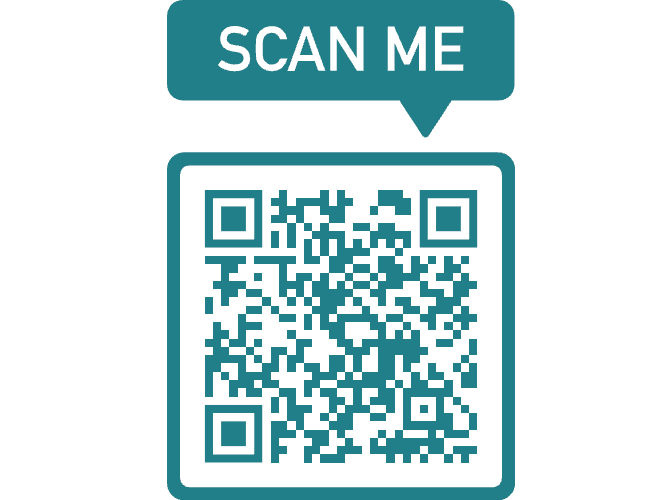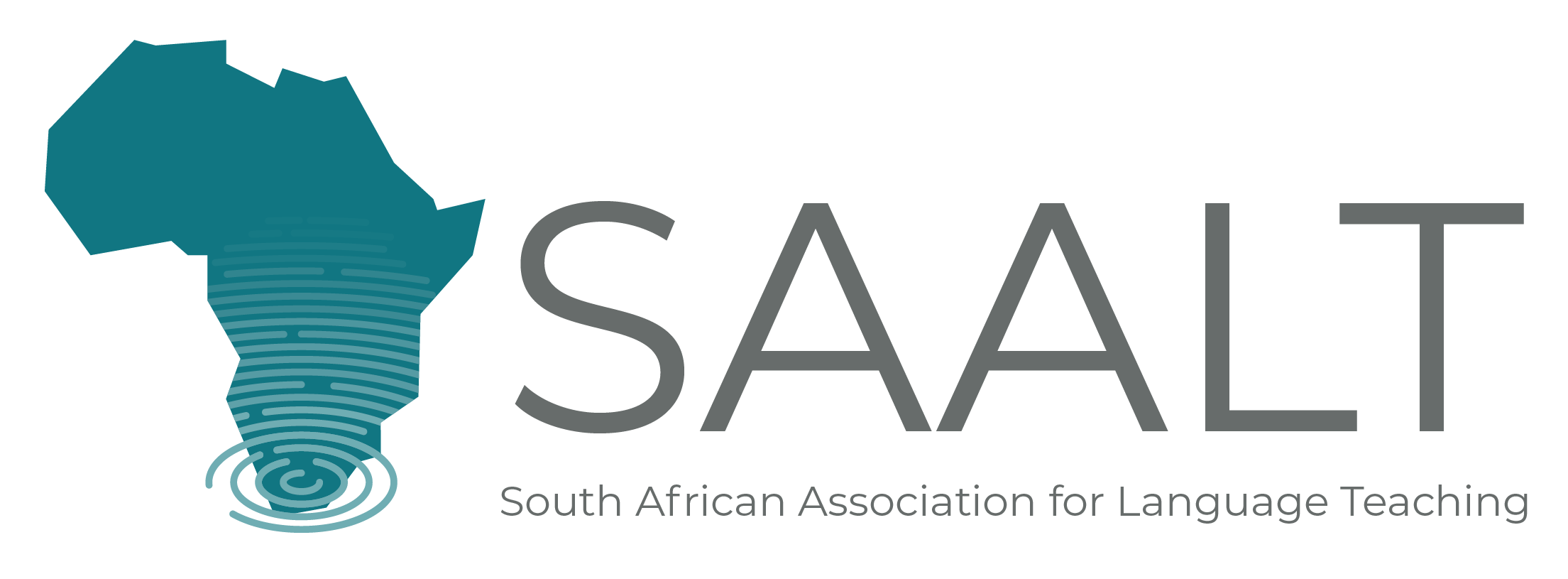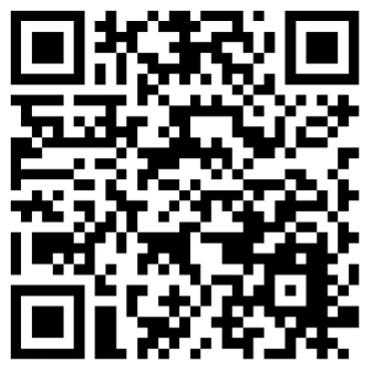SAALT Newsletter: October Edition
Language, Heritage, and Connection: Reflecting on SAALT’s Journey
In this packed newsletter we look back at the past few months. As the dust settles after the conference we took some time to reflect on a few matters. This newsletter includes an insert that links heritage with language and another insert on the importance of libraries as a space for collaboration. We furthermore provide some feedback regarding our conference that was held at Skukuza, Kruger Nation Park and announce the newly elected executive member. The editorial team for the Journal for Language Teaching also invites conference delegates to submit full-length articles based on their presentations for consideration in the upcoming special edition of the Journal for Language Teaching, titled From Chalkboards to Chatbots. We also invite you to join one (or more) of our SIGs. Please also take note of the changes regarding SAALT membership outlined in this newsletter.

Important dates that we celebrate include
- Women’s Day – 9 August 2025
- Heritage Day – 24 September 2025
- International Translation Day – 30 September 2025
- Teachers’ Day – 5 October 2025
- National Dictionary Day – 16 October 2025
- International Library Day – 24 October 2025
On Women’s Day we honoured the women who had paved the way for future generations. In language education, women have always played a vital role in shaping curriculum, pedagogy, and policy. We aim to continue to empower women and girls through education, promoting equality and inclusivity in all aspects of life.
In September, we explored the significance of African languages, literacy initiatives, and cultural heritage in our country. As we celebrated Heritage Day we honoured the rich cultural diversity and heritage of South Africa. In the month of September, we also recognised the importance of literacy and language in shaping our identities and communities.
With key celebrations marking the calendar in October including Teachers’ Day, National Dictionary Day, and International Library Day we pay tribute to the unwavering commitment of educators, the profound impact of language and words, and the vital contributions of academic support services.
Reimagining Heritage through the lens of Language
Imagine your brain. Not the squishy pink organ in a textbook, but a living, breathing landscape, a place of stories, memories, and potential. It’s a bit lazy, yes. It prefers the familiar, the well-worn paths. But give it a challenge, a spark, and it starts to stretch, grow, and reimagine.
Picture heritage now. It’s not just about dusty artefacts or old-fashioned photographs, but the vibrant, everyday expressions of who we are, our food, our music, our rituals, and most of all, our language. Language is heritage in action. It’s how we recall, how we connect, and how we grow.
Let’s celebrate Heritage Month by redefining what heritage means through the lens of language. Language is more than just a means of communication; it’s a source of pride. Imagine the grandmother proudly showing photographs of her grandchildren; that same sense of joy resides in the words we use when talking about our heritage. When we share our language with others, we’re not merely teaching them new words; we’re offering a glimpse into our world, our values, our sense of humour, our history, and our way of life.
And when we learn someone else’s language, we’re not losing anything – we’re gaining. The brain doesn’t subtract; it adds. Learning a new language is like adding a new room to your house. Suddenly, you can host more stories, more guests, more perspectives. You become not just smarter, but better – more empathetic and more connected.
Heritage isn’t set in stone. It’s not something we inherit and then keep on a shelf. It’s something we live and share, and language is the perfect way to do so. It lets us take pride in saying, “This is who I am, and I’m proud of it.” And it allows others to do the same.
So, how will you rediscover your heritage on Heritage Day? Will you learn a greeting in one of the other languages spoken by your fellow countrymen? Will you ask someone about the meaning behind a word they use daily? Will you teach someone a phrase that makes you feel at home?
Let your mind be curious. Let your heritage be generous. Let your language be shared.
Reimagine your heritage this Heritage Day.
Written by Andrea Botha (North West University)
Celebrating Library Day
Written by DJ Cloete (Akademia)
In an age where information is available at the tap of a screen, libraries are often seen as outdated. Yet a library remains one of the few places where imagination is the only limitation.
As a child, I truly enjoyed visiting our small town’s public library. I would sit for what felt like hours, completely absorbed in the stories. Each school holiday, I couldn’t wait to discover what new books had arrived. This library was far from the most modern or well-equipped space, but it always felt welcoming. My favourite place to sit and read was the carpeted corner, and by the time we had to leave, I was already so captured by the book I’d started that I often forgot to choose others to take home.
Recently, I saw a post on LinkedIn by Bill Gates in which he fondly remembers his hometown library. He shared a short and inspiring video about the important role it played in his life. Watch it here.
Years later, when I arrived at university, I was in awe of how big and modern the campus library was. I could spend days there, captivated by the sheer magnitude of the number of books. For me, a library is not only a place where one can find a book on almost any topic – it is also a place where friendships are formed. During my student years, my classmates and I spent hours in the library studying (especially before a big exam) or working together on assignments. It was the place where we shared ideas, collaborated, and offered support – a space where we built a little community of our own. Whenever I visited other universities, my friends and I always made a stop at the library. We were excited to experience the vastness of these spaces. The knowledge preserved (and shared) in a library contributes to a country’s history and future. These are the spaces that help create the next poets, engineers, doctors, and everything in between.
Now, as a lecturer, I often encourage my students to take advantage of what the library has to offer. These spaces are often overlooked, and many students only search online for sources, while a rich collection is just a few steps away – a place where a whole new world awaits. And let’s not forget the librarians, who are often like magicians. They somehow always find the titles that are just right for the topic you’re researching. In a world that is increasingly digital and online, may we never forget how valuable libraries are as shared spaces.
SAALT Journal
Special Conference Edition
-
Submission Deadline:
Monday, 10 November 2025. -
Guidelines:
Submission and formatting requirements will be available on the SAALT website and mailing list. -
Access the Latest Issue:
Click here to view the latest issue
Conference delegates are warmly invited to submit full-length articles based on their presentations for consideration in the upcoming special edition of the Journal for Language Teaching, titled From Chalkboards to Chatbots. This edition will feature innovative scholarship and reflective practice that emerged from the conference, with a particular emphasis on language teaching, learning, and digital transformation in diverse educational contexts. We aim to curate a collection that reflects the depth, diversity, and momentum of the conversations sparked at the event.
Submissions must be received by Monday, 10 November 2025.
Submission guidelines and formatting requirements will be shared via the SAALT website and mailing list. We look forward to showcasing the voices and visions that are shaping the future of language education.
If you have missed the latest issue of the journal, visit https://www.journals.ac.za/jlt/index to read the articles published in this volume.
Reflections on the SAALT 2025 conference
The SAALT Conference held in July at the Kruger National Park was an enriching and memorable experience for all who attended. At the conference, we were reminded of the importance of human connection in language education to bridge gaps and build strong communities — especially within a multilingual country like South Africa. During our conference, we built upon this human connection, shared knowledge, reflected on practices, and critically discussed ideas related to language education.
Some traditional methods paved the way for innovation in the classroom, yet we also experienced new technological advances that supported our teaching. We saw how chatbots and virtual classrooms could engage students in learning in new and creative ways.
Feedback from delegates was overwhelmingly positive, with 100% indicating that the conference content was relevant to their professional development needs and that they would attend future SAALT events. The quality of presentations was highly rated, with 80% describing them as good or excellent, and 100% expressing satisfaction with the levels of interaction and engagement during sessions. The unique setting of the Kruger National Park provided an inspiring backdrop for learning and networking, fostering meaningful connections among language teaching professionals.
While some delegates suggested improvements such as a printed programme and more affordable dining options, the overall experience was highly positive. A heartfelt thank you to the organisers and our sponsors, ICELDA and SADiLaR, for their dedication and support to create a conference that successfully combined professional growth, collaboration, and innovation — we look forward to building on this success at our next SAALT gathering!
New Exco member
We are delighted to announce that Dr Nkhensani Maluleke from the University of Johannesburg has been elected to serve on the SAALT Executive Committee for the next two years. Her expertise and passion for advancing language teaching and learning will be a tremendous asset to our team. We are privileged to welcome her on board and look forward to the fresh perspectives, innovative ideas, and collaborative spirit she will bring as we continue to grow SAALT and strengthen our impact both nationally and internationally.

Special Interest Groups
To join the SAALT SIG Community you can scan the QR code below, or click on the WhatsApp link for the specific SIG you are interested in.

Academic Writing
During our conference this year, we discussed opportunities for the coming year. We shared ideas on how we can collaborate and promote best practices among members who are interested in academic writing. One of the initiatives we would like to launch is to build an online bibliography of publications on academic writing. If there are members who are willing to participate and would like to share their research with us, please send an email to info@saalt.org.za.
You are also welcome to join the Academic Writing WhatsApp Group simply by clicking here.
Assessment and Testing
The past few months have been quite exciting for our Assessment and Testing SIG. We have successfully delivered three webinars as part of the series Assess smart with Albert. We would like to thank Prof. Albert Weideman for availing himself of these webinars. These webinars are available on our website at https://saalt.org.za/webinars/. This SIG also forms part of the Network of Expertise for Language Assessment (NExLA). For more information, visit: https://nexla.org.za/
You are also welcome to join the SAALT Assessment and Testing WhatsApp Group simply by clicking here.
African Languages: Teaching the African Way
The Special Interest Group (SIG) on African Languages: Teaching the African Way is dedicated to advancing the teaching and learning of African languages in ways that affirm their cultural, linguistic, and pedagogical richness. The SIG provides a collaborative platform for educators, researchers, and practitioners to share innovative methodologies, grounded in African worldviews, that respond to the realities of multilingual classrooms. By promoting African languages as both subjects and mediums of instruction, the group seeks to strengthen literacy, preserve cultural heritage, and contribute to educational transformation in South Africa.
We are therefore inviting you to join this group to advance our African language education.
To join our WhatsApp group click here
Addressing Diverse Multilingual Classroom Realities
Through our Special Interest Group (SIG) on Addressing Diverse Multilingual Classroom Realities, we aim to create a community of practice among the lecturers, teachers, departmental officials and members of NGOs who celebrate our language diversity in South Africa and who view language as a resource and a responsibility. We would like to collaborate on projects to celebrate the wealth of our language repertoires and find innovative ways in which to develop and support all the languages in South Africa and to share research and best practices on how languages can be harnessed to promote learning
To join our WhatsApp group click here
Advancements in Technology: Language Teaching and Assessment
The Advancements in Technology: Language Teaching and Assessment Special Interest Group (SIG) is one of the exciting SAALT SIGs through which we aim to foster a forward-thinking community of practice—one that embraces innovation, critical dialogue, and collaborative exploration of digital tools in language education. Educators, researchers, and practitioners are welcome to join our WhatsApp community (click here), where updates, announcements, and entry points into our broader shared resource and collaboration space will be shared. For more information, please contact mariska nel at mariska.nel@nwu.ac.za.
Membership Fees for 2025/2026
Important notice: At our AGM held during the SAALT Conference 2025 on 30 July 2025 it was decided that SAALT will change its membership dates from 1 January to 31 December 2025 to 1 July 2025 to 30 June 2026. Please note if you have paid your membership fees after 1 July 2025 your membership will be active until 30 June 2026.
Becoming a SAALT member offers valuable opportunities for professional growth, networking, and collaboration within the language teaching community. Members gain access to an online profile and a directory of expertise, where they can connect with colleagues who have indicated their willingness to serve as journal article reviewers, external examiners, moderators, and more. This creates a dynamic platform for building partnerships and sharing knowledge. In addition, members enjoy exclusive benefits, including a 20% discount on page fees when publishing in the Journal for Language Teaching (JLT). By joining SAALT, you become part of a vibrant network dedicated to advancing language education and research across South Africa and beyond.
We would like to remind everyone to renew their SAALT Membership for 2025/2026. More information is available on our website at https://saalt.org.za/become-a-member/. From this page, you will be able to navigate to our membership levels. The following options are available:
- SAALT Individual Teacher Membership: R250
- SAALT Schools Memberships: R500
- SAALT registered Postgraduate Students: R200
- SAALT Registered Academics/researchers/Other Institutions: R500
After you have made your selection on the following page https://saalt.org.za/membership-levels/ you can choose one of two options.
-
Option 1:
Subscribe and pay via our secure online payment portal, Payfast. The subscribe and pay option allows you to access your online profile immediately. -
Option 2:
Request an invoice and pay via EFT or submit your invoice to your institution. If you choose this option, please remember to submit your proof of payment to the upload link that is sent to you via email after you have subscribed. As soon as your payment has been verified (please allow 2 weeks for this process), you will be able to access your online profile.

